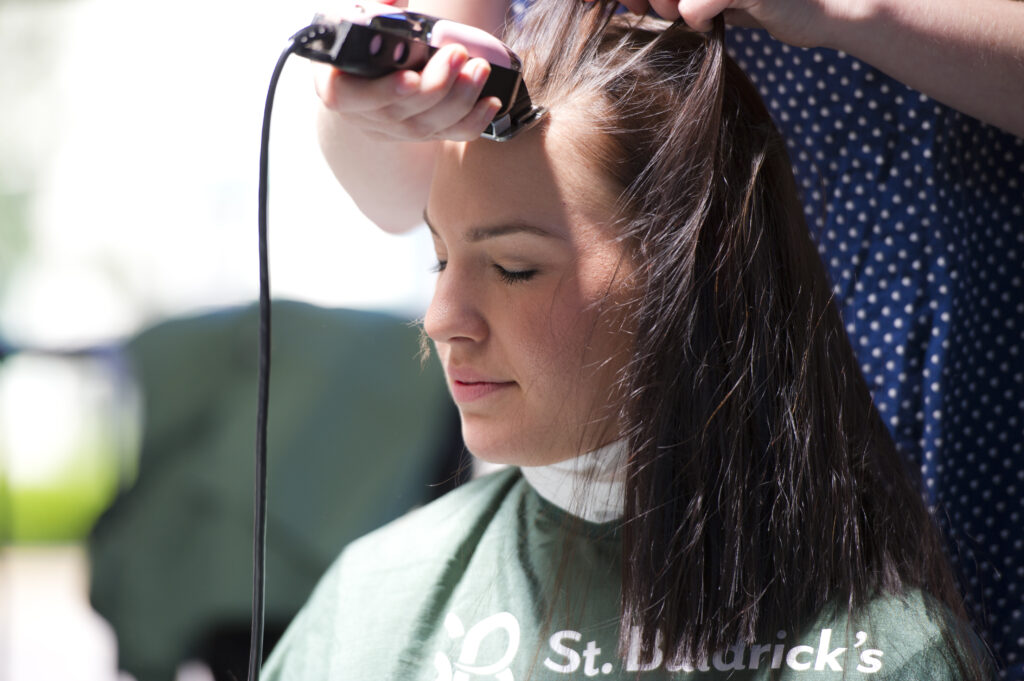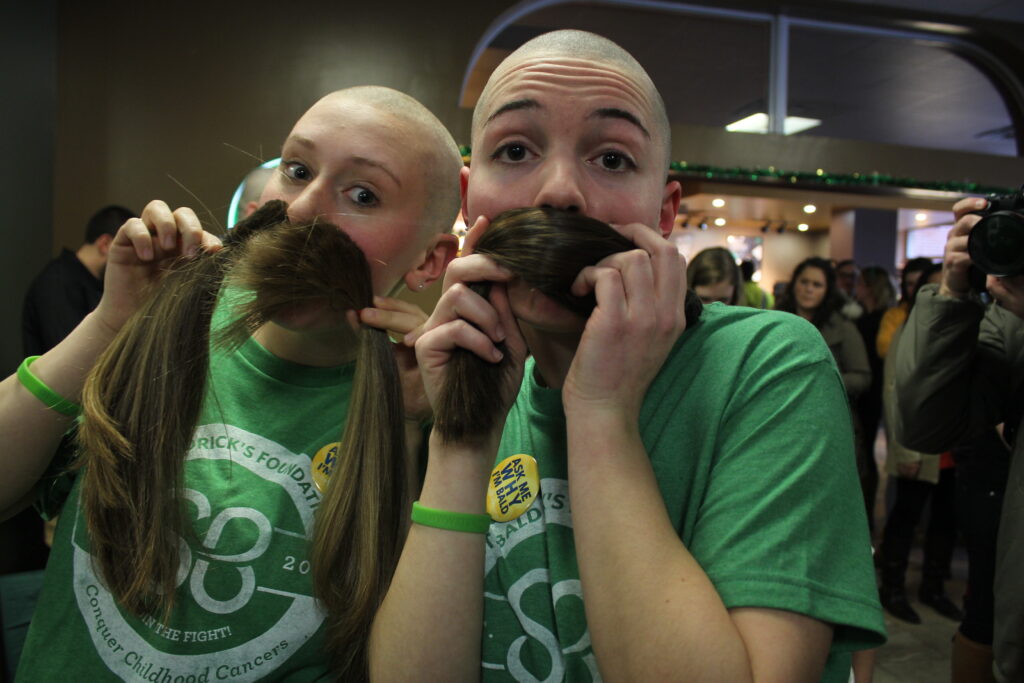When you shaved or donated your hair, changed your style, or just impatiently waited for your locks to catch a wave, did you ponder the deep, intriguing process—scientifically, unless you’re inclined to philosophical musings—of hair growth? Whether you just got done shaving your head to raise money to Conquer Kids’ Cancer at a local St. Baldrick’s event or you miscalculated how short you were trimming your bangs, many will wonder—how long will it take my hair to grow back? Whatever the reason, unlocking the mysteries of hair growth isn’t just vanity’s fascination; it’s a study of applied biology that can be as emotionally rewarding as it is factual.

Why We Should Care About Hair Growth
Hair is way more than just a style choice. It tells stories about our culture, is a quirky trait of evolution, and can even show how healthy or stressed we are. For anyone who’s ever dealt with hair loss or simply just wanting your mane to grow, getting to know the ins and outs of hair follicles becomes super important. Welcome to our follicle journey, where we go through the ins and outs of growing that hair we love to cut cut cut (take it from us, we’ve been shaving heads for 25 years).
The Phenomenon of Hair Growth
Hair follicles aren’t just random strands protruding from our scalp. They’re shuttle looms of biological manufacturing, constantly weaving and unweaving the tapestry of our mane. The cycle has three distinct phases:
Anagen, or the Growth Phase
This is the active growth phase where cells in the root of the hair rapidly divide. A new hair forms and pushes the club hair (a hair that has stopped growing or is no longer in the anagen phase) up the follicle and eventually out. This phase lasts several years; genes influence both the length and strength of your anagen phase.
Catagen, or the Transition Phase
At the end of the anagen phase, the hair enters the catagen phase, a short transitional phase that lasts approximately 10 days. During this time, the hair follicle shrinks due to disintegration and the papilla detaches and “rests,” cutting the hair strand from its blood supply.
Telogen, or the Resting Phase
This is the resting phase, whether the hair and follicle renew. When the body is subjected to extreme stress, as much as 70% of the follicles can prematurely enter the telogen phase, or die, to be shed within a few months.

Factors Playing with Your Hair-Chemistry Set
Hair growth is an intricate process influenced by a myriad of factors, from your genetic blueprint to the health of your scalp. It’s a scientific fact with variables:
Genetic Factors
Your DNA holds the keys to hair growth, determining hair color, density, texture—and importantly, how long your anagen phase will last. There’s no “quick fix” gene, but understanding your genetic hair growth potential can manage expectations.
Environmental and Lifestyle Factors
Environmental assaults can wreak havoc on the fragile hair growth process. Staying mindful of how heat, pollutants, and harsh chemicals can impact your hair can help maintain a healthy growth cycle. Similarly, a healthy lifestyle with a balanced diet and stress management can promote your hair’s overall health.

The Speed Limit of Hair Growth
On average, most people experience a hair growth rate of about half an inch per month. The kicker? That’s not a constant speed; it can slow or halt based on many influences. Men, due to hormonal differences, often have faster-growing hair, though the disparity isn’t extreme.
Nurturing Your Tresses to Their Full Potential
If you’ve ever bemoaned your hair’s slow growth or looked enviously at a friend’s cascading locks, you’ve likely wondered how to tip the scales in your favor:
Care for Your Hair
Avoiding over-manipulation, choosing gentle shampoos, and employing regular maintenance routines can give you the best shot at achieving your ideal hair length.
Feed Your Hair
Your hair is an outward reflection of inner health. A diet rich in nutrients like proteins, vitamins—especially biotin, and essential fatty acids can bolster the efforts of your hair growth.
Lifestyle Choices
Make healthier life choices with eating and exercise, and manage stress to create the most fertile environment for your hair to flourish.
Understanding Hair Loss Is Part of the Growth Process
Sometimes, a sloughing off of old growth is the norm, sometimes it isn’t. If this is happening at an alarming rate, it’s time to investigate further. Hair loss can be triggered by various factors, including:
Hormonal Changes and Medical Conditions
Hormones, particularly those related to pregnancy, childbirth, or the onset of menopause, can trigger hair loss. Medical conditions such as alopecia areata, and diseases like lupus or diabetes, can also lead to hair loss.
Medications and Supplements
Side effects of certain medications and overdoses of vitamins and minerals can lead to hair loss.
Poor Hair Care
Overly aggressive hair treatments, including perming, coloring, and texturizing treatments, can lead to the weakening of the hair shaft and contribute to hair loss.
Psychological Factors
Intensive emotions, stress, and even meager or excessive psychological states can lead to hair loss.

Put Your Newfound Hair Knowledge To Good Use
Hair growth is like a symbol of endurance, renewal, and transformation. Getting to know how it all works can really help us make better choices about how we take care of our hair, and it lets us marvel at the cool biological stuff happening right on our heads.
Thinking about shaving or cutting your hair to help raise money for childhood cancer research? Understanding hair growth can make that generous act feel even more special. Your hair isn’t just stuff on your head—it’s a mix of emotions and a biological wonder—and sometimes even a tool for raising funds for a worthy cause!
Shave Your Head for Kids’ Cancer
Read more on the St. Baldrick’s blog:

 SBF
Tweets »
SBF
Tweets »